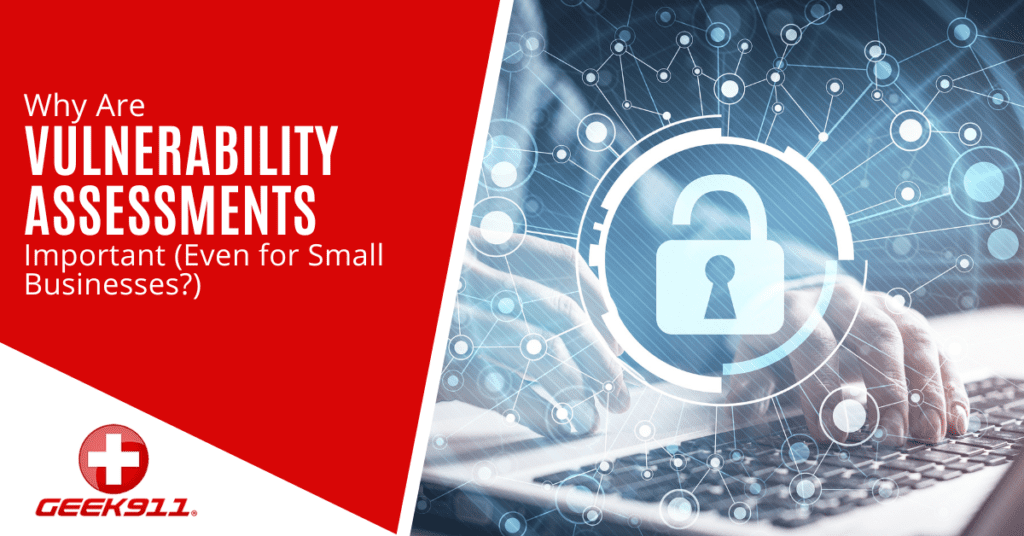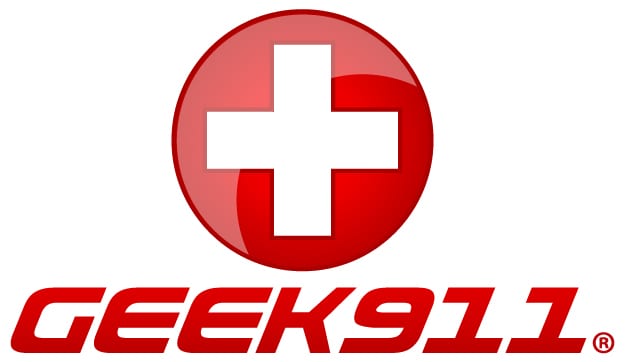Why Are Vulnerability Assessments Important (Even for Small Businesses?)

In the tech-driven world, even your corner bakery has an online presence. Cybersecurity isn’t just for the big shots anymore. Every organization, regardless of size, is a potential target for cyberattacks. Hackers are constantly searching for vulnerabilities in software, networks, and systems to exploit.
Data breaches increased by nearly 20% during the first 9 months of 2023.
These vulnerabilities can be entry points for attackers to steal sensitive data, disrupt operations, and cause significant financial damage. This is where vulnerability assessments come into play. They are the proactive steps businesses take to identify, analyze, and prioritize weaknesses in their security posture.
While large enterprises with dedicated IT security teams might readily embrace vulnerability assessments, smaller businesses often question their necessity. They might believe their size makes them less attractive targets, or they might underestimate the potential consequences of a cyberattack. However, this perception couldn’t be further from the truth.
Why Small Businesses Need Vulnerability Testing
Here’s why vulnerability assessments are crucial, especially for small businesses.
Small Businesses are Prime Targets
Contrary to popular belief, small businesses are attractive targets for cybercriminals for several reasons:
- Perceived Weaker Security: Small businesses often have fewer resources to invest in robust cybersecurity measures, making them easier targets for attackers.
- Valuable Data: Even small businesses hold valuable data – customer information, financial records, intellectual property. This data can be lucrative for attackers to sell on the dark web.
- Limited Security Awareness: Smaller businesses might have less emphasis on security awareness training for employees, making them more susceptible to phishing attacks and social engineering tactics.
A vulnerability assessment helps identify these weaknesses in your security posture before attackers exploit them. By proactively addressing these vulnerabilities, you significantly reduce your risk of falling victim to a cyberattack.
The Cost of a Breach Can Be Crippling for Small Businesses
While large corporations have the resources to absorb the financial blow of a data breach, a successful cyberattack can be devastating for a small business. The costs associated with a breach go beyond compromised data and include:
- Remediation Costs: Identifying the source of the breach, recovering lost data, and repairing compromised systems can be expensive endeavors.
- Regulatory Fines: Many industries have strict data privacy regulations. A data breach due to unpatched vulnerabilities can lead to hefty fines.
- Reputational Damage: A cyberattack can shatter customer trust in your ability to safeguard their data. Regaining that trust can be challenging and time-consuming.
By conducting regular vulnerability assessments, you can prevent these costly consequences and protect your business’s financial well-being.
Vulnerability Assessments Prioritize Remediation Efforts
Not all vulnerabilities are created equal. Some pose a more significant risk than others. Vulnerability assessments not only identify weaknesses but also prioritize them based on their severity and potential impact. This allows you to focus your limited resources on addressing the most critical vulnerabilities first, maximizing your security ROI.
Peace of Mind and Improved Business Continuity
A cyberattack can disrupt your business operations, leading to downtime, lost productivity, and revenue. Regular vulnerability assessments provide peace of mind by giving you a clear picture of your security posture. By addressing any identified vulnerabilities, you ensure your business remains operational and minimize the risk of disruptions due to cyberattacks.
Regulatory Compliance in Certain Industries
Many industries, such as healthcare and finance, have strict data privacy regulations. These regulations often mandate that businesses conduct regular vulnerability assessments to ensure the security of sensitive data. By having a documented vulnerability assessment process in place, you demonstrate compliance with these regulations and avoid potential penalties.
Making Vulnerability Assessments Work for Your Small Business
Here are some tips to ensure your vulnerability assessments are effective for your small business:
- Schedule Regular Scans: Don’t treat vulnerability assessments as a one-time event. Schedule regular scans to stay ahead of emerging threats.
- Choose the Right Tools and Techniques: There are various vulnerability scanning tools and techniques available, catering to different budgets and needs. Consider seeking guidance from cybersecurity professionals like GEEK911.
- Remediate Identified Vulnerabilities: The real value of vulnerability assessments lies in remediation. Develop a plan to address identified vulnerabilities promptly and prioritize critical patches.
- Integrate Security Awareness: Vulnerability assessments alone cannot guarantee complete security. Invest in employee security awareness training to empower your workforce to recognize and avoid cyber threats.
Vulnerability Assessments: An Investment, Not an Expense
Vulnerability assessments may seem like an added expense, but they’re an investment in your organization’s security. The potential damage from a cyberattack due to unpatched vulnerabilities far outweighs the cost of regular assessments. Consider it preventive insurance for your digital assets.
Prioritizing vulnerability assessments provides clarity on your security posture, helps address weaknesses, and minimizes cyber risk. It leads to a secure environment, builds customer trust, and ensures resilience in today’s dynamic digital world.
Schedule a Vulnerability Assessment Today
Don’t be in the dark about your security weaknesses! GEEK911 can do a thorough vulnerability assessment for your Silicon Valley area business. We’ll provide comprehensive results and a clear roadmap to address any potential risks.
Contact us today to schedule a consultation. Call 866-433-5411 or reach us online.
